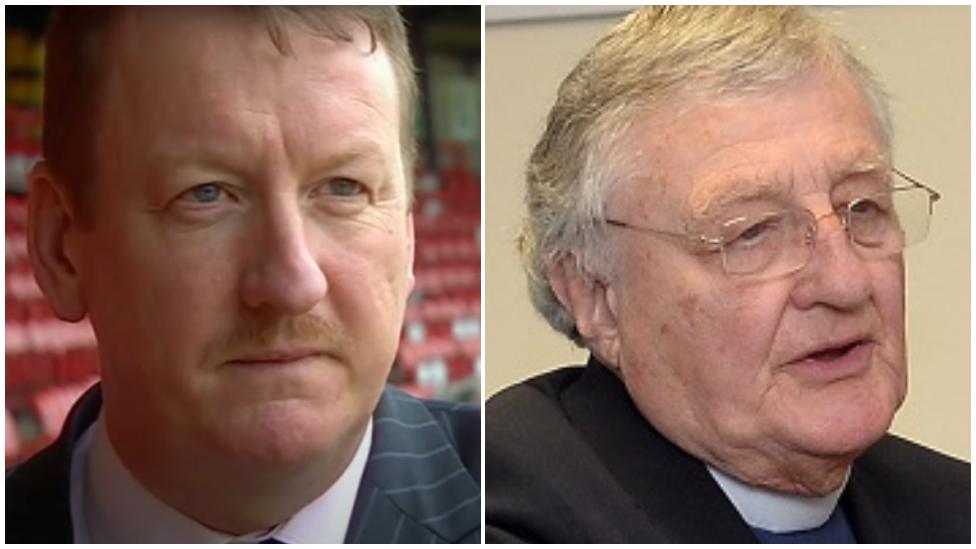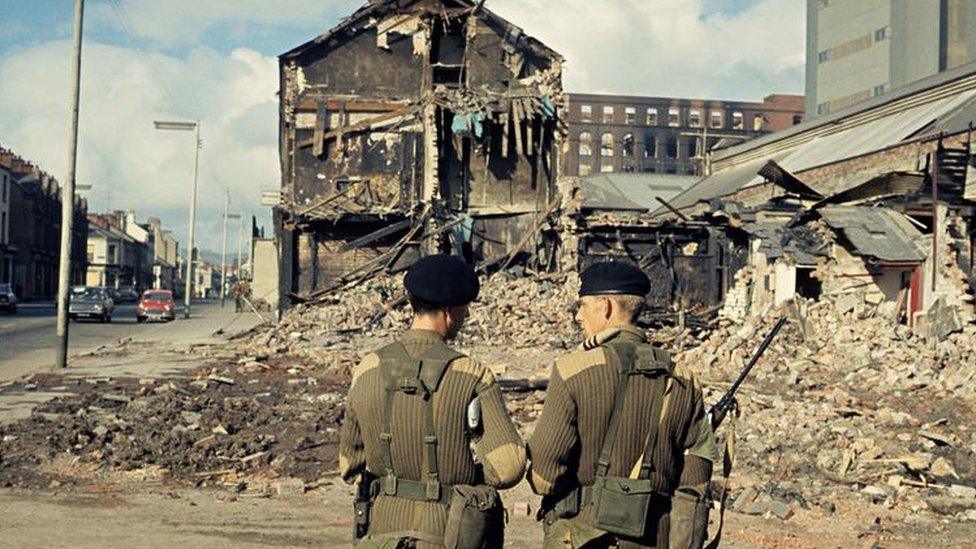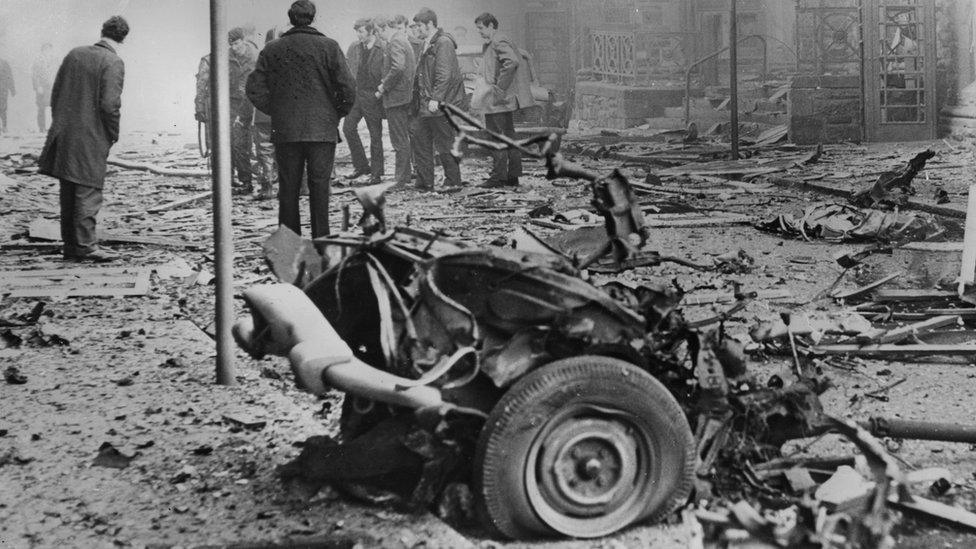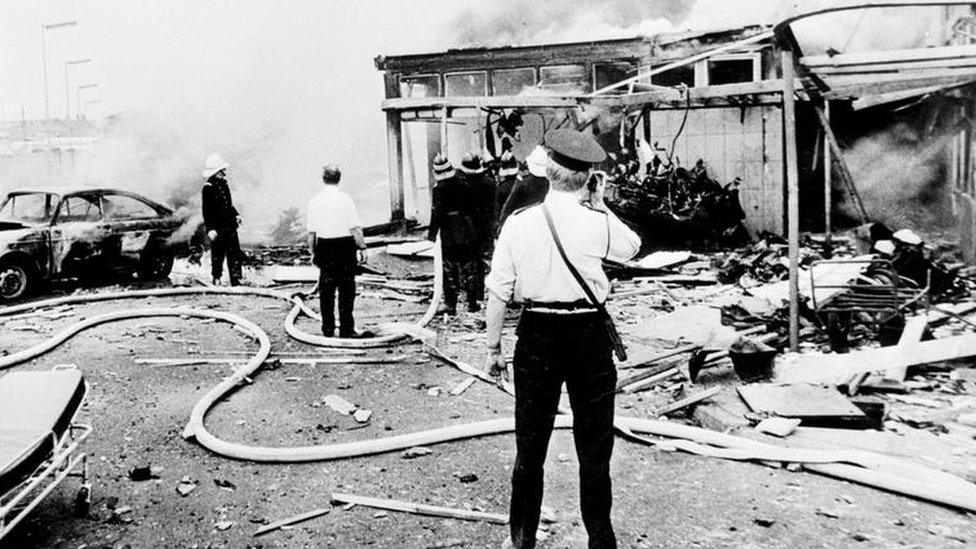The Troubles: Organisers defend NI legacy event in London
- Published

Jim Roddy (left) and Rev Harold Good said no political parties were invited to the event, which they described as "a seminar"
Two men behind a meeting on NI legacy issues in London have defended the event, after it was branded "a secret talks process which ignored victims".
Londonderry city centre manager Jim Roddy and Rev Harold Good, a former president of Ireland's Methodist Church, said they had asked the Archbishop of Canterbury to host it.
In a statement they said no political parties had been invited.
They described the event as "a seminar" focused on a report published in April.
Held at Lambeth Palace on 2 November, those on the guest list included representatives of the British and Irish governments, veterans' commissioner Danny Kinahan, senior republican Sean Murray, loyalist Winston Irvine and Judith Thompson, who was until recently the commissioner for victims and survivors.
They discussed a report by Queen's University academic Kieron McEvoy, who also attended.
Among the report's contents is a scenario in which zero jail time could be served for convictions in Troubles cases in the future.
Continuation of 'serious conversations'
A statement read: "Following the presentations, there was a useful discussion between the participants on the contents of the research."
It is understood there will be a further meeting in the coming days.
Mr Roddy and Rev Good added that the event was an extension of years of work on "peace process-related issues" and a continuation of "serious conversations relating to legacy and our troubled past".
When news of the event emerged, Innocent Victims United said it was "maddening" to have been excluded.
The report, however, had previously been discussed with representatives of victims' groups.
On Friday, Sinn Féin said one of its officials, Sean Murray, had attended.
In the statement, Mr Roddy and Rev Good said: "We did not invite political parties to this seminar as discussions between the parties are the responsibilities of the two governments and the parties themselves."
The government has faced sharp criticism in recent weeks for not engaging with victims' groups and political parties on a new plan for dealing with the past, which was outlined in March.
The proposal would see the vast majority of Troubles murder cases closed without any re-investigation.
Related topics
- Published26 October 2020

- Published9 April 2020

- Published18 March 2020
